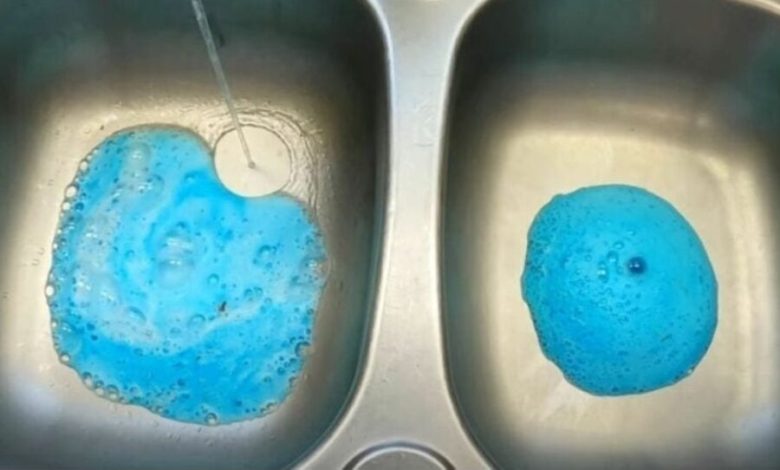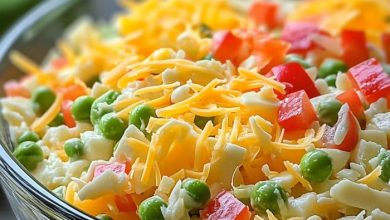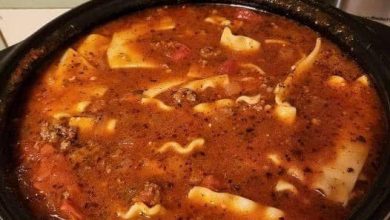Most people don’t realize these 25 things are dangerous to put down the sink

We often think of our kitchen sink as a convenient way to get rid of waste, but not everything belongs down the drain. Many common household items can cause serious damage to plumbing, clog pipes, or even lead to environmental harm. Surprisingly, some things that seem harmless can create long-lasting issues. So, before you wash that waste down the drain, take a moment to check whether it’s actually safe.
ADVERTISEMENT
Here are 25 things that you should never put down the sink!
ADVERTISEMENT
Harmful Effects of Putting Things Down the Sink
Improper disposal of certain materials can wreak havoc on your plumbing system. Over time, these substances build up, clogging pipes and causing expensive repairs. But beyond plumbing, there’s the broader issue of how these materials can pollute the water supply and harm aquatic life. Protecting both your home and the environment starts with knowing what to keep out of the drain.
ADVERTISEMENT
Common Household Items That Shouldn’t Go Down the Sink
Grease and Oil
One of the most common offenders, grease and oil may be liquid when you pour them down the sink, but as they cool, they solidify and create massive blockages. They stick to the pipes and attract other debris, forming “fatbergs” that are extremely difficult to remove.
Fatty Foods
Similar to grease, fatty foods like butter, lard, or cooking fats can clog drains. While small bits might seem harmless, they gradually build up and lead to significant issues.
Coffee Grounds
Despite their tiny size, coffee grounds don’t dissolve in water. Instead, they clump together and can block drains. Many plumbers rank coffee grounds as one of the top culprits behind kitchen sink clogs.
Eggshells
You might think eggshells would break down in the drain, but they don’t. Eggshells can mix with other materials, creating blockages in your pipes.
Chemical Dangers
Paint and Paint Thinners
Never pour paint or paint thinners down the sink. These chemicals are harmful to water systems, and they can damage your plumbing. Dispose of them according to local hazardous waste guidelines.
Cleaning Products
Many household cleaners contain harmful chemicals that can corrode pipes over time. When these substances enter the water supply, they can also be dangerous to wildlife.
Bleach
While bleach is great for disinfecting, pouring it down the drain can corrode pipes and mix with other substances to create toxic fumes.
Medication
Flushing medication down the sink or toilet is dangerous for the environment. Pharmaceuticals can enter the water supply and harm aquatic life. Instead, take them to a pharmacy or disposal site.
Personal Hygiene Products
Wet Wipes
Wet wipes, even those labeled as “flushable,” can clog pipes. They don’t break down easily, and they often get caught in the plumbing, leading to backups.
Cotton Balls and Q-Tips
Cotton products don’t dissolve in water. Instead, they absorb moisture and expand, which can quickly cause a blockage in your pipes.
Dental Floss
Dental floss can tangle with other debris and create massive clogs. It also doesn’t biodegrade, meaning it will persist in the environment for a long time.
Food Waste Items
Pasta
Pasta expands when it comes into contact with water. This expansion can clog pipes as it absorbs water, making the blockage worse over time.
Rice
Like pasta, rice absorbs water and expands, creating the potential for major blockages in your kitchen plumbing.
Vegetable Peels
While vegetable peels are biodegradable, they are better suited for compost bins. When sent down the drain, they can tangle in your pipes, leading to clogs.
Harmful Liquids
Alcohol
While it may seem harmless, alcohol can contribute to corrosion in your pipes and should be disposed of responsibly.
Motor Oil
Pouring motor oil down the drain is not only dangerous for your pipes but also harmful to the environment. It can pollute water sources and take years to break down.
Antifreeze
Antifreeze is toxic and can severely pollute water sources. It’s critical to dispose of it at a proper recycling center rather than pouring it down the drain.
Cosmetics and Beauty Products
Hair
Hair is one of the most common causes of clogged drains. It tangles easily and can accumulate over time, leading to serious blockages.
Nail Polish Remover
Nail polish remover contains chemicals like acetone, which can corrode pipes and contribute to water contamination.
Lotion and Creams
Thick lotions and creams can solidify in pipes, leading to clogs. It’s best to wipe these off surfaces and throw them away rather than washing them down the drain.
Environmental Impact
When harmful substances enter our water systems, they can have long-lasting effects on aquatic life and ecosystems. Many of these items contain chemicals that don’t break down easily, leading to pollution that can last for decades.
How to Properly Dispose of Waste
Composting Organic Waste
Rather than throwing food waste down the sink, consider composting. Items like vegetable peels, pasta, and rice break down naturally in a compost bin and can help enrich your garden soil.
Recycling Hazardous Materials
For items like motor oil, antifreeze, and paint, recycling centers are the best option. They’ll ensure these harmful materials are disposed of safely.
Plumbing and Repair Costs
Constantly putting the wrong things down your drain can lead to expensive plumbing repairs. Blocked pipes may require professional cleaning, and in severe cases, you might even need to replace sections of your plumbing.
Conclusion
Taking a little extra time to properly dispose of household waste can save you from costly repairs and help protect the environment. Remember, not everything belongs down the drain. With just a few adjustments, you can avoid clogs, keep your plumbing in good shape, and reduce your environmental footprint.




